Empowering Africa Through Beans

The evolution of Canada’s support to the Pan-Africa Bean Research Alliance from 1996 to 2028
Imagine a world where a simple bean can change lives. This is the story of how Canada, through its partnership with the CGIAR, created the Pan-Africa Bean Research Alliance (PABRA), which is empowering African farmers to grow more and better beans while advancing nutrition, trade, gender equality and biodiversity.
“Beanin’ Up the Hill”: Overcoming Agricultural Obstacles in the 1990s
In the early 1990s, international agricultural scientists from the CGIAR network realized that beans—a food rich in protein and essential nutrients—were not well known to African farmers and rarely planted. Poor soils, lack of quality seeds, undeveloped markets and the unpredictable impacts of climate change were major challenges limiting the integration of beans into African farms. This is what brought PABRA to life.
International Team for African Beans
The International Center for Tropical Agriculture (CIAT) started working on ways to improve bean production and distribution. Recognizing the potential of this initiative, Canada provided funding to launch PABRA through the Canadian International Development Agency (CIDA) in 1996, and to this day continues its support through Global Affairs Canada (GAC). The Swiss Agency for Development and Cooperation (SDC) and the United States Agency for International Development (USAID) also provided support for the launch. This marked the beginning of a transformative journey through international cooperation.
A Growing Success
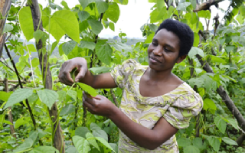
PABRA is planting the seed for success
Credit: Alliance of Biodiversity International and CIAT
Over the years, PABRA has evolved, focusing on various aspects of bean farming. Since its inception, it has experienced both successes and challenges. “The key impacts include the wider adoption of climbing bean varieties, which covered 5% of bean production in early 1980s to about 45% in 2022. This adoption contributed to increased bean yield,” shared PABRA Director Jean Claude Rubyoho. “However, currently the bean production is facing the impacts of climate changes coupled with land scarcity.”
Initially, from 1996 to 2000, efforts were focused on genetic improvement to create more resilient and productive bean varieties. This was followed by improvements in farming techniques and the establishment of networks for farmers to share knowledge and resources.
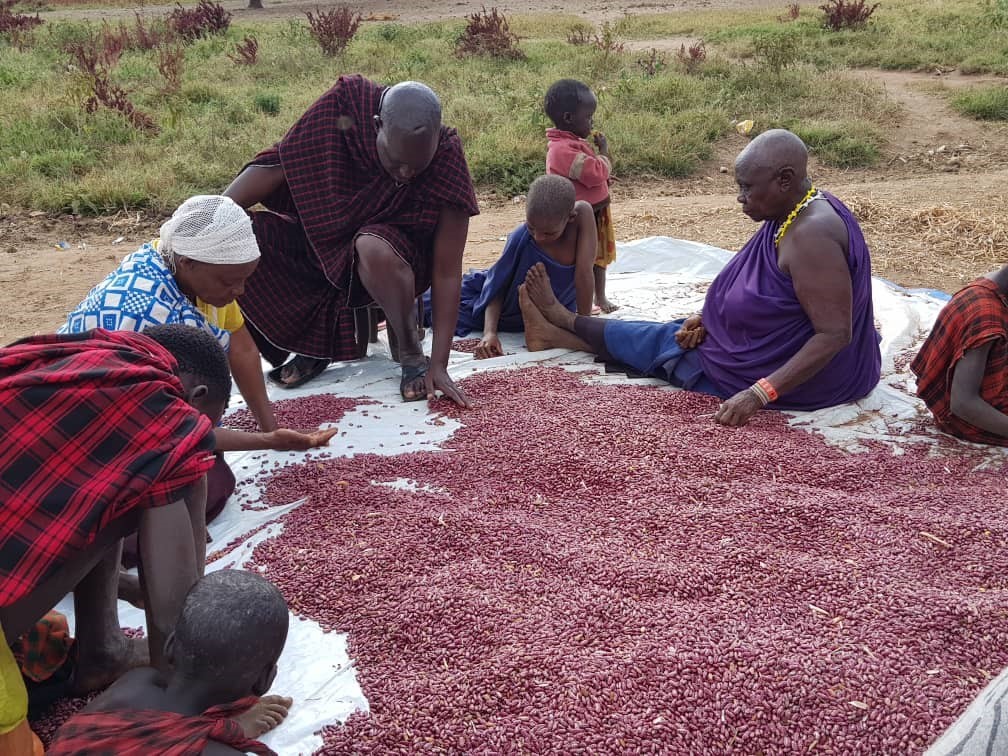
Women farmers are empowered with the tools and knowledge to grow and sell beans – to empower their families.
Credit: Alliance of Biodiversity International and CIAT
With a focus on plant production agronomy from 2000 to 2003, PABRA established regional bean networks such as the East and Central African Bean Research Network (ECABREN) and the Southern African Bean Research Network (SABRN) to facilitate knowledge sharing and collaboration among farmers. Emma Uwera, a seed entrepreneur from Rwanda, credits her success to this knowledge sharing: “PABRA and RAB (Rwanda Agriculture and Animal Resources Development Board) supported me with basic seeds, farmer awareness, and technical support during the study, which I successfully completed."
The period from 2004 to 2008 focused on nutrition and farming systems, integrating beans into farms and diversifying farmers’ production. Much work was also done to address malnutrition by scaling up the production and consumption of micronutrient fortified beans, including in schools. School principal George Murage shares the positive impact on his students: “Since we started bean farming, we have noted a great transformation at the school. We are now self-sufficient in bean production and have cut down on the expenses of buying beans for our school lunch feeding program. Because of the assured meals at school, we have seen a drastic improvement in school attendance and retention.”
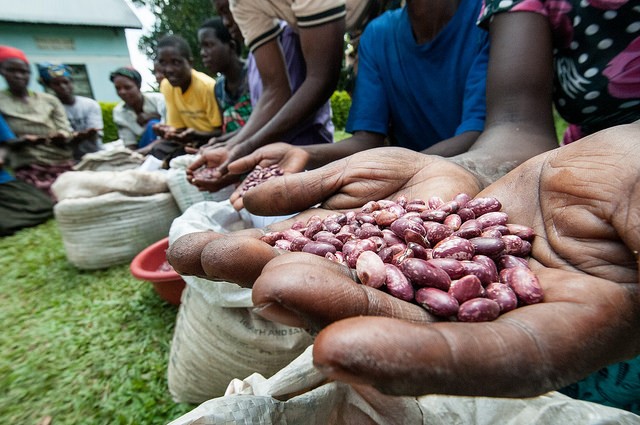
From seed to harvest, PABRA beans are cultivating a sustainable future.
Credit: Alliance of Biodiversity International and CIAT
As climate change became a greater threat between 2009 and 2014, PABRA expanded its reach, helping farmers in 28 countries develop climate-resilient farming practices and establishing the West and Central Africa Bean Research Network (WECABREN). Justin Mabeya, a researcher at the Alliance Bioversity International - CIAT, emphasizes that “beans hold the key to addressing food security and environmental sustainability in Africa,” and stresses the importance of promoting improved climate-resilient bean varieties and advocating for sustainable farming practices.
More recently, from 2015 to 2023, the focus shifted to trade and market development, enabling farmers to sell their beans across borders and improve their livelihoods. Through initiatives like Improving Bean Production and Marketing in Africa (IBPMA), PABRA expanded its impact to 31 countries and fostered cross-border trade linkages. PABRA provided leadership to improve farm productivity and profitability and meet increasing consumer demand. H.E. Jakaya Kikwete, former president of Tanzania, commends PABRA’s dedication to bean research and development, noting its remarkable impact on overcoming malnutrition. He also announced the network as the 2023 laureate of the prestigious Africa Food Prize.
One of the most impactful initiatives is “Beans4Women,” launched in the Democratic Republic of Congo. This gender equality program, which runs from 2024 to 2027, empowers women farmers by providing them with the tools and knowledge to grow and sell beans, ensuring they have a stable source of income and nutritious food for their families.
PABRA’s focus from 2024 to 2028 is on biodiversity through the BRAINS initiative, promoting the cultivation of diverse bean varieties to enhance resilience and sustainability.
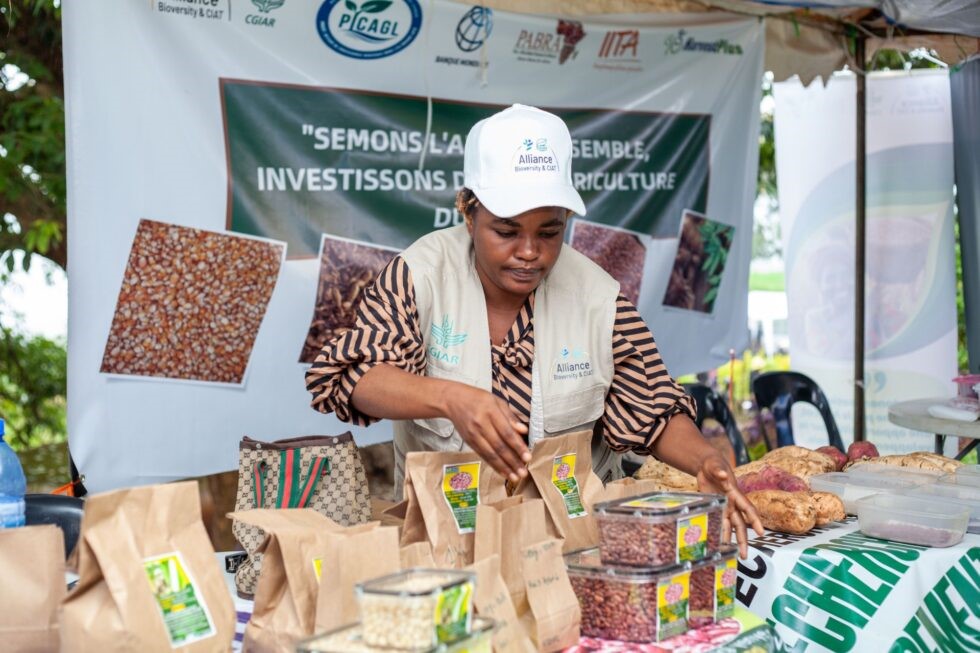
PABRA beans have transformed communities and boosted food security across the Africa
Credit: Alliance of Biodiversity International and CIAT
To date, the results have been remarkable. PABRA has helped cultivate 6.3 million hectares of beans and produce 97,000 tonnes of improved bean varieties. This has significantly boosted food security and nutrition for millions of people. The economic impact has been equally impressive, with the bean trade growing from US$15 million in 2003 to US$300 million in 2022.
Canada’s support has also led to transformational advancements in African food systems by expanding the adoption of climate-resilient and biofortified beans rich in iron and zinc, which help combat malnutrition. “I was specifically interested in working with these varieties because of the challenges of malnutrition among smallholder farmers, expectant women, and children under 5. Iron and zinc were an important need for this group,” remarks Uwera.
These efforts align with Canada’s commitment to sustainable development, food security, and gender equality. “The consecutive and mutually supporting projects are an excellent example of Canada's long-term commitment to support strong partnerships for poverty reduction and increasing prosperity in developing countries,” adds Nikita Eriksen-Hamel, Deputy Director of Food Systems Practice at Global Affairs Canada.
A Sustainable Future
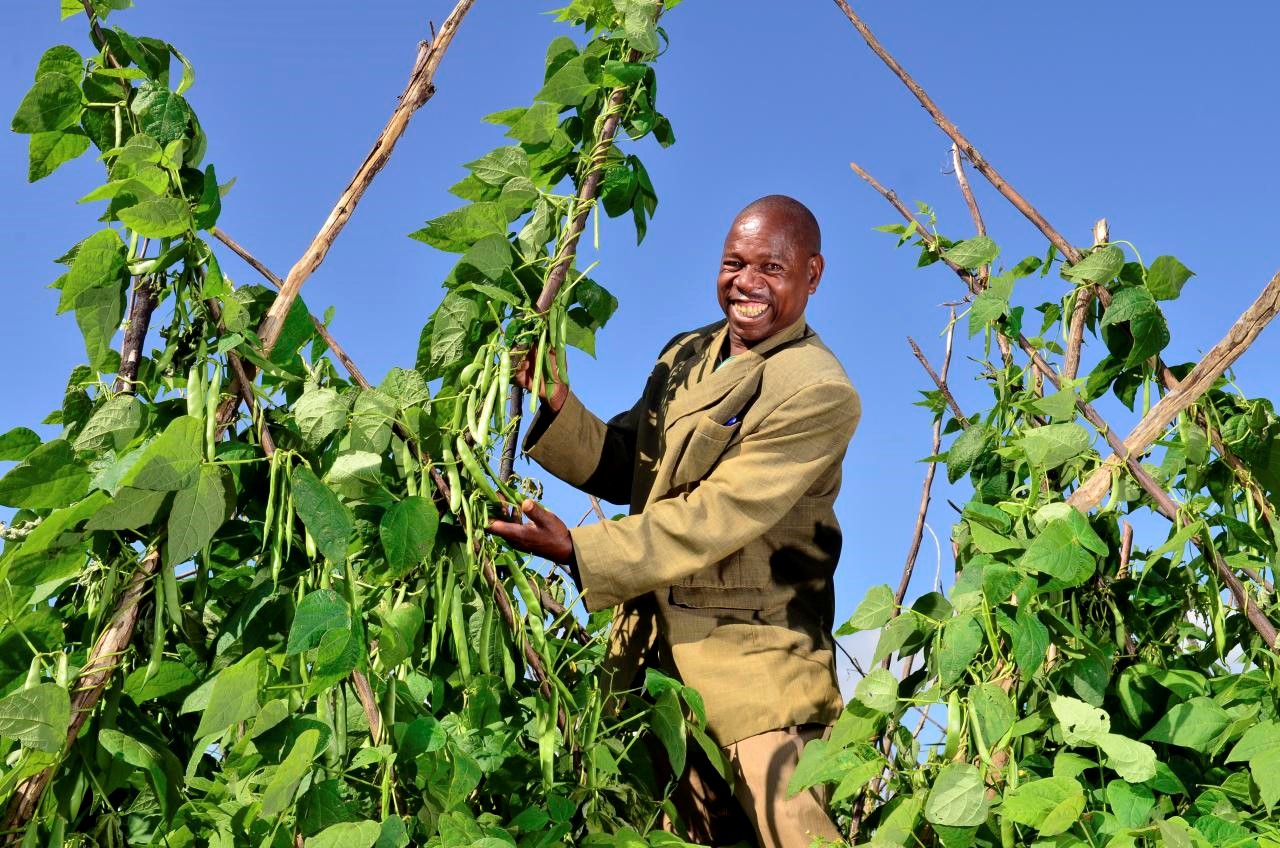
Big change starts with small beans! PABRA is boosting food security by improving bean production – helping communities access nutritious, climate-resilient crops.
Credit: Alliance of Biodiversity International and CIAT
Over the past 3 decades, PABRA has transformed communities and boosted food security across the continent by adapting to evolving challenges. Eriksen-Hamel also notes that “PABRA is without a doubt one of Canada’s most successful agri-food system development investments of the past 25 years,” exemplifying sustainable food system transformation to address complex challenges like food security, poverty reduction, gender inequality, and climate change. Through this enduring partnership, Canada and PABRA are demonstrating the profound impact that sustained and inclusive support can have on communities around the world.
From seed to harvest, these beans are not just crops—they are the seeds of change, cultivating a sustainable future.
- Date modified: